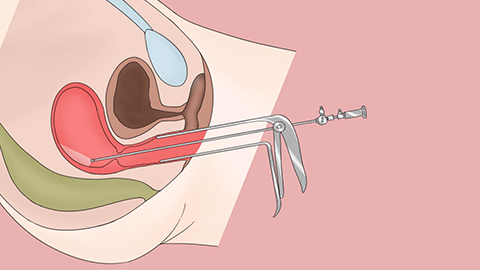Why should you try to get pregnant as soon as possible after a hysteroscopy?
After undergoing hysteroscopy, it is advisable to conceive as soon as possible. Reasons include optimizing the uterine environment, reducing the risk of disease recurrence, minimizing the chance of re-adhesion, taking advantage of the postoperative recovery window, and improving pregnancy success rates. Scientific preconception planning should be carried out only after medical evaluation confirms physical readiness. If abdominal pain, abnormal bleeding, or other issues occur during preconception preparation, prompt medical consultation is recommended.
1. Optimize Uterine Environment: Hysteroscopy can repair intrauterine adhesions, remove polyps, and treat other lesions. After surgery, the uterine cavity regains normal shape and the endometrial condition improves. Conceiving at this time provides an optimal environment for embryo implantation, reducing the risk of implantation failure.
2. Reduce Risk of Disease Recurrence: Some hysteroscopic procedures address conditions such as endometrial polyps or submucosal fibroids, which are prone to recurrence. Conceiving shortly after surgery may suppress lesion regrowth through hormonal changes, thereby reducing the impact of recurrent disease on fertility.

3. Minimize Risk of Re-Adhesion: The endometrium undergoes a healing process after hysteroscopic surgery. Timely conception promotes endometrial regeneration through embryo implantation and hormonal regulation, helping prevent re-adhesion due to poor endometrial repair and ensuring a clear pathway for conception.
4. Utilize the Postoperative Recovery Window: The 3–6 months following surgery represent the optimal period for uterine functional recovery. During this time, the body has not yet been affected by potential negative factors, resulting in relatively higher conception success rates. Beyond six months, the uterine environment may gradually deteriorate.
5. Improve Pregnancy Success Rates: Hysteroscopy resolves structural issues that impair fertility. Attempting conception soon after surgery allows couples to take advantage of the body’s best recovery state, preventing delays that could lead to additional fertility complications and increasing the likelihood of natural conception.
After surgery, follow medical advice regarding rest and avoid fatigue and infection. Maintain a diet rich in high-quality protein and vitamins to support endometrial healing. Stay emotionally balanced and avoid anxiety. Monitor ovulation as directed by your doctor and scientifically plan intercourse timing within the limits of your physical recovery.




